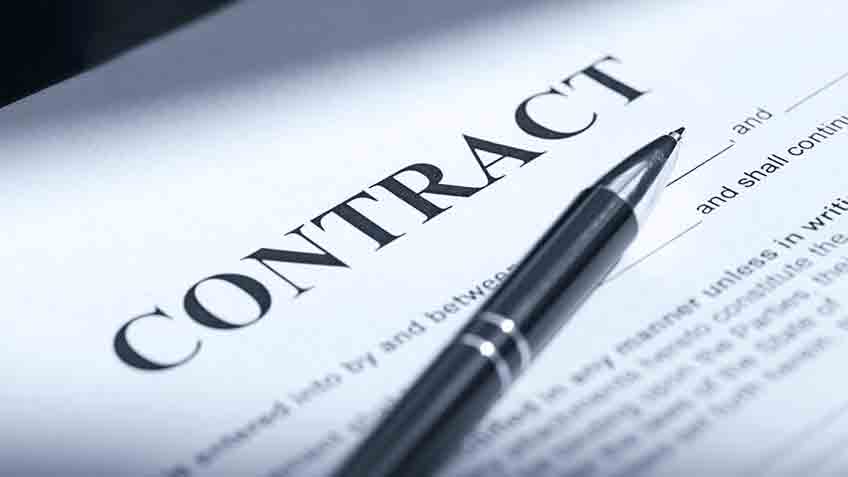Table of Contents:
- Knows the area and the location of the house
- Knows how to communicate well
- Understands documents
- Knows the types of contracts
- Knows what a deposit is
- Knows how to check documents
- Knows how to negotiate
- Defends the interests of the client
- Conclusion
There are two types of realtor knowledge. What you need to know and what ability intermediaries have. We have been dealing with real estate realtors in this article and we will tell about much experienced he is in this area.
If a realtor asks for a lot of money for his work, he must work it out and provide you with a quality service. Let’s figure out what a realtor needs to know to work in the real estate market.
Knows the area and the location of a house

It is good when a realtor lives in the same area where he works and is engaged in his activities. Lives half of his life and knows what is located and where. Then he will be able to tell the person the advantages and disadvantages. But this is not always the case. Often non-local people work as intermediaries, and you have to figure out the specifics of a particular area during work.
To work successfully, a realtor will need to know the area itself and its houses. Before choosing an apartment or leading a client to a show, you need to imagine what is found and where roughly. What streets are in demand, and how are they different.
Knows how to communicate well

The display of the apartment, which the mediator sees for the first time in his life, is usually held in silence. This is a category of realtors – silent. What can a person tell about an apartment, advantages, and disadvantages, if the realtor is in it first? So they are tactfully silent. All the same, they won’t tell you anything sensible.
The second category of mediators is talkative. They carry any nonsense to sell. He will talk about a good apartment and a bad one in the same way. But everything is in general terms. He does not know the area of the rooms and the parameters of the apartment. But he knows how to talk well and distract from viewing. The main thing is to create a good impression and get a commission after the transaction. Nothing else matters.
But the ideal realtor’s option is when he understands what he is telling. Before showing an apartment to a client, a realtor must prepare and know the answers to all questions of interest. A good realtor should know all available information about the apartment and the house for sale, and if he does not know, then know where to get it and answer the right question.
Understands documents

An experienced realtor should know what types of real estate documents are. Who owns the property, and on what basis is it possible to sell it. Which of the documents the owner has and which still need to be collected. Primary documents of title:
- Privatization
- Purchase and sale
- Donation agreement
- Lifetime maintenance contract
- Investment agreement
- Inheritance
- The court’s decision
And these documents need not only to know but also to be able to distinguish. It is also desirable to understand in general terms the types of contracts with developers and investment schemes. Understand how the apartment will be re-registered and what the main risks are.
You do not need to understand thoroughly, but it is worth worrying about the client’s safety and hiring a real estate lawyer to check the documents and accompany the transaction.
The lawyer must deal with the documents and support the transaction. And the main task of a realtor is the selection of options and the sale of an apartment. Therefore, there is a separation of duties and labor. Realtor – sells, and real estate lawyers check and accompany the transaction.
Knows the types of contracts

A realtor must know what types of contracts are and understand which one is needed for what.
- Preliminary agreement
- Contract of sale
Few people are familiar with the preliminary agreement. Usually, they draw up an agreement of intent or an advance payment agreement with agencies. Also, intermediaries often use two types of contracts for the provision of intermediary services:
- Contract for services
- Exclusive contract
Both are related to the realtor’s commission and earnings.
Knows what a deposit is

Often a realtor is told that you need to take a deposit for an apartment and are taught how to take it. And if you read the article below, you will find out that in a preliminary real estate contract, you cannot even mention the word “deposit” and not what to take. Only an advance payment or a security amount.
Therefore, in the legal intricacies of the work of a realtor, it is still worth understanding a little.
Usually, an advance agreement is drawn up at a real estate agency before buying an apartment.
It was created for the buyer to transfer part of the money for the apartment and the seller to have some guarantees of going out to the deal in the future. The parties agree on the transaction terms and support their intentions by transferring part of the money.
Knows how to check documents

The realtor should not be engaged in direct verification of documents. A realtor is only a seller of goods; he is responsible for the selection of apartments. To verify the documents, specialized real estate lawyers should be involved. Only this step will help determine whether it is possible to enter into a deal or whether it is better to refuse a purchase.
Knows how to negotiate

Negotiation is an integral part of a realtor’s job. He must work with each party to the transaction and discuss all the essential terms. The realtor receives money for organizing the deal and showing the apartments. He sells a product and must present it in the best possible way. It is the most crucial part of the job.
Negotiations between buyer and seller and their interests must be taken into account by the realtor. But it often happens that the question of who pays the commission to the realtor comes to the fore. After that, all necessary conditions for re-registering an apartment, etc., are already discussed.
Some use the services of a realtor only for the selection of an apartment. It is better to entrust all other points to real estate lawyers. It will be a much more thoughtful step, and it costs less than the services of a realtor.
Defends the interests of the client

From the previous point, it is clear that often not everyone wants to use the services of intermediaries because of a commission of 5% of the price of an apartment. Therefore, it is not always clear what interests a realtor should defend if one of the parties does not want to pay him. Often a realtor has to protect his interests and fight for a commission.
The interests of the client are not always at the forefront for the intermediary. Everyone wants to make money. If you do not guarantee the realtor earnings under the contract, the intermediaries will take a commission from the buyer. But then problems can begin.
The realtor will scare away a buyer who is profitable for you with his commission. And you have to wait for someone willing to pay him, but then you will receive less. For example, a customer has 40 thousand. He wants to buy. And your apartment is worth 40 thousand.
But then a commission of a realtor of 2 thousand appears. It means that the buyer needs to pay 42, but he does not have that much. He refuses to pay. And your good deal will be thwarted by the realtor. As a result, you will get 38 or continue looking for a buyer and get even less.
Therefore, it is better to discuss all the conditions with the realtor in advance to avoid any problems later. If you want to hire a realtor, then guarantee him a salary. In this case, everything will be fair, and the deal will go well.
Conclusion
Realtors provide only information services. Further, all the problems that were with the documents fall on the buyer. So, hopefully, now you figured out what a realtor should know and what he knows.
Knowledge for the work of a realtor requires not as much as it seems, but also not a little. You need to be able to work with people and sell well. You need to be a self-confident person and be well versed in people. Listen to their desires and be able to select the right property. It is the primary competence of realtors.
Contact lawyers to support the transaction and successful purchases. You now know the main things a realtor should know. There are many more accompanying points, such as reading layouts, working in a team, and being constantly in touch—quite a few moments.
But the most important thing is the ability to find clients and sell real estate. Knowledge comes with experience, so it is vital to develop.





